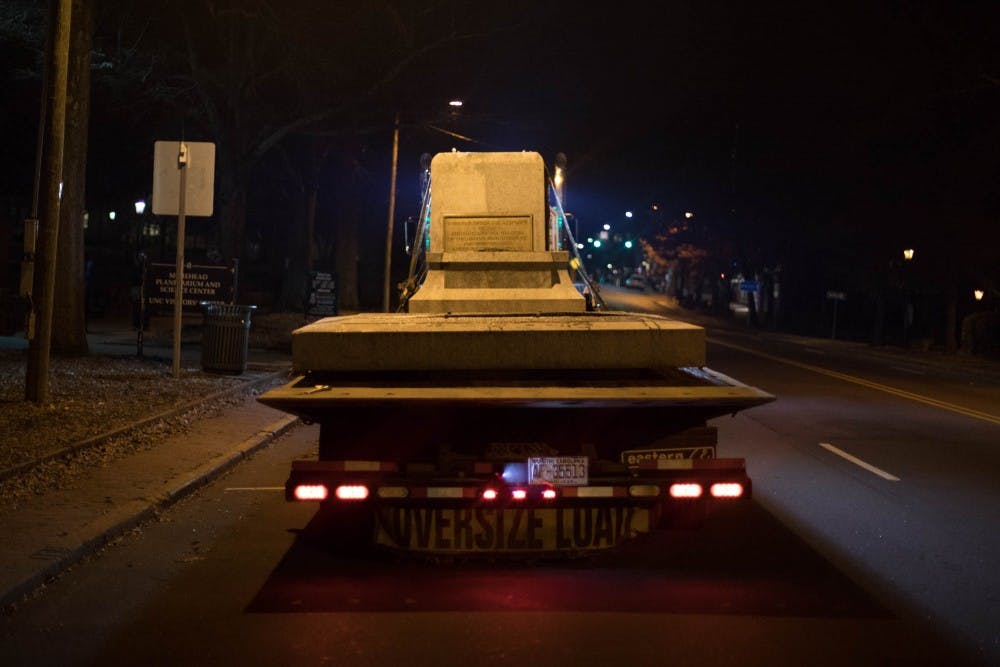The UNC administration has grappled for months over the future of Silent Sam. N.C. Rep. Kelly Alexander, D-District 107, said it’s time to take the decision out of its hands.
“I think the Board of Governors has had ample time to do something,” Alexander, who represents Mecklenburg County, told The Daily Tar Heel. “And I believe they've just been dithering."
Alexander is the primary sponsor behind House Bill 20, a bill recently introduced to the N.C. House of Representatives that would offer an exception to G.S. 100-2.1, the 2015 law that has kept Silent Sam on campus and with no set future.
The bill, most recently referred to the Committee on State and Local Government, would allow the University chancellor to permanently relocate Silent Sam off campus and provide a legal out for UNC’s administration, which has yet to devise an accepted plan for the monument’s future since it was toppled on Aug. 20.
The bill would place the monument in the custody of North Carolina’s Department of Natural and Cultural Resources, a government organization that oversees the state’s artistic, historic and natural resources. The department would then place the statue in a cemetery for Confederate soldiers.
It’s the second possible Silent Sam solution introduced to the House since the session began in January. The first, filed Jan. 30, calls for a repeal of the former law and would remove the legal barrier that has kept the chancellor from permanently moving the monument off campus.
Alexander, who walked past Silent Sam during his days as a UNC student, said HB 20 offers a fair solution that honors the historical value of the monument.
“There's just not an appropriate museum (that exists),” Alexander said. “That's why it was proposed at one point that we spend $5 million or more to essentially create a space for the statue. That didn't make a whole lot of sense to me.”
Alexander was referencing the Board of Trustees’ December proposal to build a new “University History and Education Center” for the statue, for an estimated $5 million in building costs and $800,000 in annual operating costs. The proposal, which followed a deadline extension of nearly three weeks, was met with backlash from students, professors and alumni.



